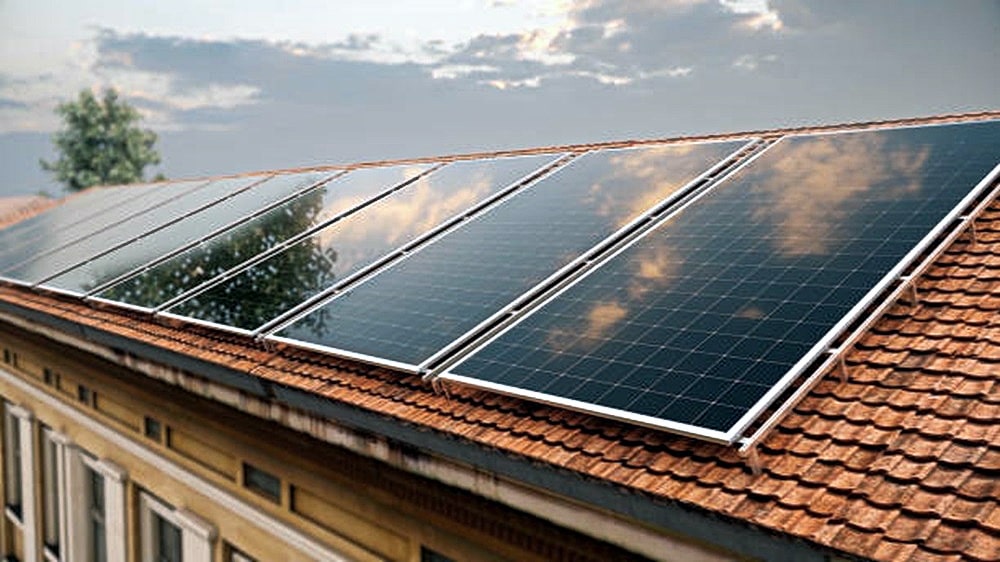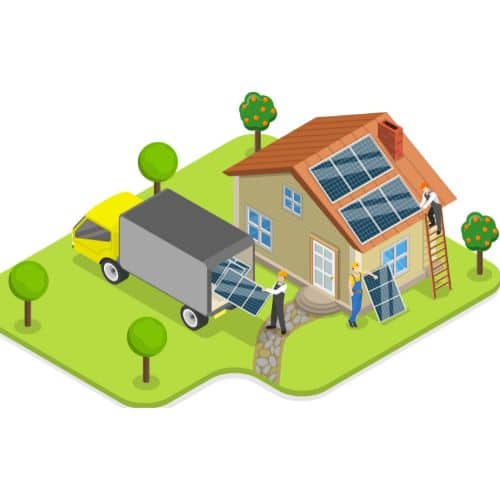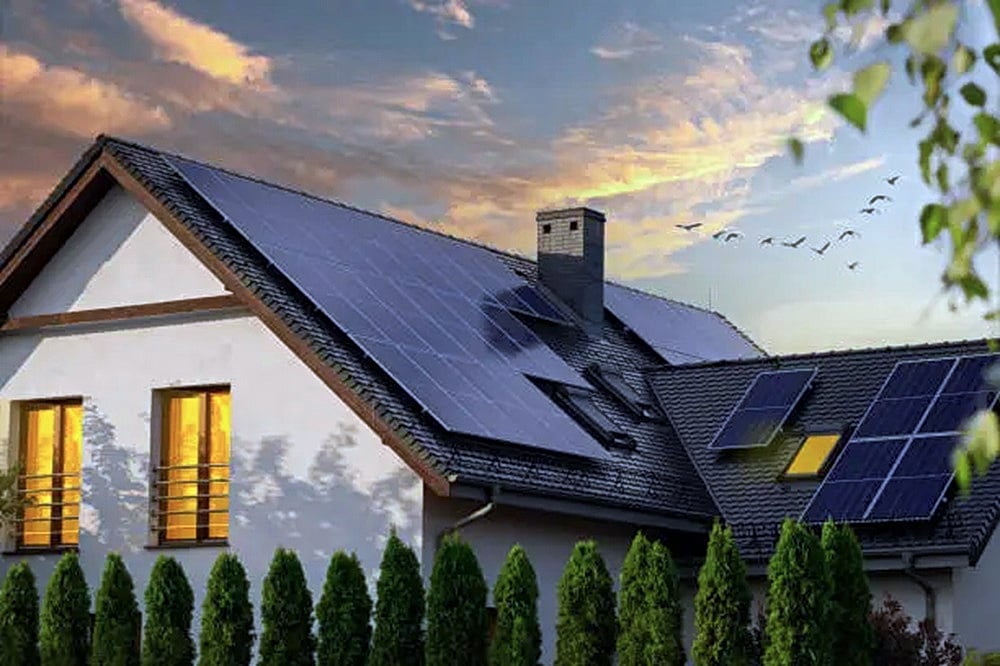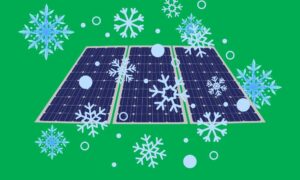Solar panels in Australia have emerged as a popular and eco-friendly energy solution, harnessing the abundant sunlight to generate electricity. However, a common question arises regarding their functionality during cloudy days and at night. Contrary to popular belief, solar panels can still generate electricity under cloud cover, albeit at reduced efficiency, and unfortunately, they do not produce power at night due to the absence of sunlight. Let’s delve deeper into the workings of solar panels in Australia under varying weather conditions.
Unleash the potential of solar battery storage! Are you ready to transform the way you power your business or household? Say goodbye to rising electricity costs and unpredictable energy grids. The state-of-the-art solar battery systems empower you to maximise energy efficiency, save money, and reduce your carbon footprint while enjoying an uninterrupted power supply.
Let us discuss and choose the best quote that suits your needs and budget, and we can connect you with our trusted local installers, who will provide up to 3 FREE quotes for your business solar and home battery system.
Solar energy is a rapidly growing renewable energy source in Australia, with many homeowners and businesses investing in solar panel systems to reduce their energy bills and environmental impact. However, one common question arises: do solar panels work on cloudy days and at night?
Yes, solar panels work on cloudy days and at night, but not as efficiently as in direct sunlight. While they rely primarily on sunlight to generate electricity, they can still produce some power even when the sun is obscured by clouds or absent altogether.
Do solar panels work on cloudy days?
- Solar panels work by converting sunlight into electricity. They can still generate electricity on cloudy days but are less efficient than on sunny days.
- Even though the sun isn’t directly shining on the panels, they can still generate electricity from the diffused light scattered by the clouds.
- The amount of electricity generated on a cloudy day will depend on the thickness of the clouds. Thicker clouds will block more sunlight and reduce the amount of electricity generated.
- On average, solar panels will produce about 25% of their rated output on a cloudy day.
- On cloudy days, the amount of sunlight reaching the panels is significantly reduced, resulting in lower energy generation. However, depending on the cloud cover, solar panels can still generate up to 50% of their peak output on a bright, sunny day.
- Interestingly, cooler temperatures on cloudy days can improve solar panels’ efficiency, as heat reduces their performance.

How do solar panels work during the day?
Solar panels are made up of multiple solar cells. These cells convert sunlight into electricity through a process called the photovoltaic effect. When sunlight hits the solar cells, the electrons in the cells are excited and begin to flow. This flow of electrons creates electricity.
The amount of electricity generated by a solar panel depends on the intensity of the sunlight, the panel size, and the panel’s efficiency. A solar panel will generate the most electricity on a clear, sunny day. However, even on cloudy days, solar panels can still generate some electricity.
Do solar panels work at night?
- Solar panels rely on sunlight to produce electricity, so they don’t generate any power at night.
- However, you can store and use solar energy during the day and at night. This is done by using a solar battery.
- Solar batteries are becoming increasingly affordable and can be a great way to get the most out of your solar panels.
- To address solar battery storage, many solar systems are equipped with batteries that store excess energy generated during the day, allowing you to use it at night.
- Alternatively, you can remain connected to the grid and draw power from it when your solar panels aren’t generating enough electricity.
Looking to save extra with your Sungrow, GoodWe or Tesla Powerwall 2 installed solar battery*? Origin and Energy Matters have teamed up to provide customers with an additional way to save and make money!
Join Origin Loop VPP as an Origin electricity customer and earn a $200 bonus! Earn $1/kWh during peak demand by letting them draw on your battery-stored solar energy.
You’ll also enjoy a 13 c/kWh feed-in tariff^ and enjoy full transparency through the Origin app. No lock-ins; leave anytime, and your yearly energy export is capped at 200kWh. Win-win for you and the grid!
If you already have solar and a battery*, then sign up today! If you don’t, get up to 3 obligation-free quotes by getting in touch with us right away.
*Your battery must be eligible to participate. | ^Feed-in tariff rates are subject to change at any time. All FIT amounts include GST where applicable.
How solar panels work at night
Solar panels do not generate electricity at night. They require sunlight to activate the photovoltaic cells within them, triggering a process that converts light energy into electricity. However, there are two ways you can still utilise solar energy after sunset:
1. Net metering: This billing system allows you to “bank” excess solar energy produced during the day with your utility company. When the sun goes down and your home needs power, you can draw from this credit to power your appliances and lights, essentially using “stored” solar energy at night.
2. Solar batteries: By installing solar batteries alongside your panels, you can store the excess energy generated during the day and use it to power your home at night. This method provides complete energy independence from the grid, allowing you to utilise solar power without sunlight.
While solar panels don’t directly produce electricity at night, these two solutions ensure you can still harness the sun’s power even when it’s not shining.
Read more about How a grid connected solar power system works.
Factors affecting solar panel efficiency in Australia
Type of solar panel: Monocrystalline panels are generally more efficient than polycrystalline panels in low-light conditions. Read more about Types of Solar Panels in Australia: A Comprehensive Guide.
Location: Australia has a lot of sunshine, which is great for solar panels. However, the amount of sunshine varies depending on location. For example, the Northern Territory gets more sunshine than Tasmania.
Tilt and orientation: The tilt and orientation of your solar panels can also affect their efficiency. The ideal tilt angle for solar panels in Australia is between 20 and 30 degrees. The panels should also be facing north to receive the most sunlight. Read more about Installing Solar: Does the Orientation of My Roof Matter?
Shading: Shading from trees, buildings, or other objects can reduce the efficiency of your solar panels. It is important to make sure that your solar panels are not shaded for too long each day.
Temperature: Solar panels are less efficient in hot weather. This is because high temperatures can damage the solar cells. However, this is less of a problem in Australia than in other countries.
How to maximise your solar panel output
There are a few things you can do to maximise your solar panel output:
- Install your solar panels in a sunny location with no shade.
- Tilt your solar panels towards the equator.
- Clean your solar panels regularly.
- Use energy-efficient appliances.
- Consider installing a solar battery.
Read more about How to Test, Calculate And Maximise Your Solar Panel Output.
Remember that the efficiency of solar panels is reduced on cloudy days and at night
Solar panels are a great way to generate clean, renewable energy. However, it is important to remember that their efficiency is reduced on cloudy days and at night. If you are considering installing solar panels, it is important to research and understand how they work. This will help you to make informed decisions about your solar energy system.
In addition to the information above, here are some additional things to keep in mind:
- The efficiency of solar panels also decreases as the temperature increases. This means that solar panels will generate slightly less electricity in hot weather.
- The lifespan of solar panels is typically 25-30 years. After this time, the efficiency of the panels will start to decrease.
- Solar panels are a relatively low-maintenance investment. However, it is important to clean them regularly to remove dust and dirt.
- Solar panels can be a great way to save money on your electricity bills. Some solar panel systems can pay for themselves in as little as 5 years.
If you are considering installing solar panels, I encourage you to contact a solar installer for a free consultation. They will help you determine if solar panels are a good option for your home and answer any questions you may have.

Why choose Energy Matters?
- We’ve been in the solar industry since 2005 and have helped over 40,000 Australian households journey to energy independence.
- We’ve pre-qualified and vetted our solar installers, who are accredited for their track record of delivering Australia’s best business and household solar systems.
- We’ll match you with installers who are local to you so you can get a quote that’s tailored to your needs.
Benefits of going solar with Energy Matters

Get up to 3 FREE quotes
We’ll connect you with 3 different solar installers so you can compare prices and services.

Work with trusted installers
We only work with solar installers who have been pre-qualified and vetted for their track record of delivering quality solar systems.

Get peace of mind
We’ll support you every step of the way, from the initial consultation to the final installation. Our team will assist you with the information you need to go solar!
Questions? Contact our team of friendly experts for free, no-obligation advice on the best solar panels, best solar batteries and full systems for your circumstances. You can also generate a quick solar quote or view our current system specials.












































